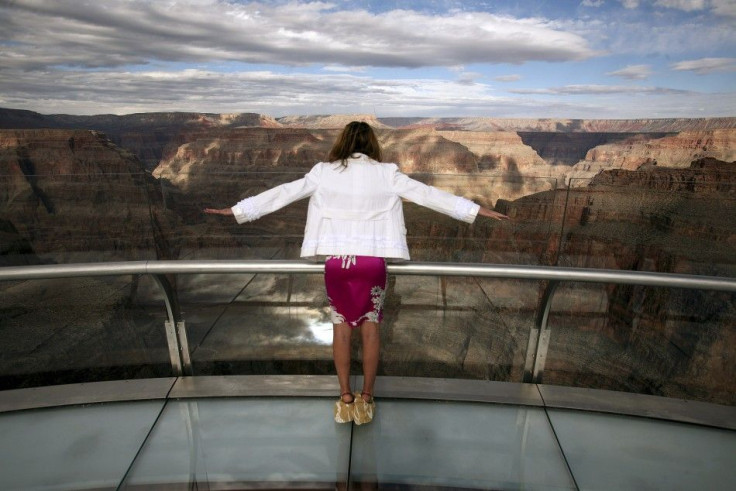Arizona: Grand Canyon Is Not National Treasure, It’s Ours

The Grand Canyon snakes across the western U.S. for some 277 miles (446km) and is the pride of Arizona. But, come next month, the iconic American landmark will carve a divide deeper than any gorge as the “Grand Canyon State” attempts to become just that.
Voters in Arizona will decide on Nov. 6 whether the Grand Canyon, one of the seven natural wonders of the world, should belong to all Americans, or just the residents of Arizona.
Proposition 120, the Arizona Declaration of State Sovereignty Amendment, “declares sovereign and exclusive authority and jurisdiction over the air, water, public lands, minerals, wildlife and other natural resources within its boundaries.”
The controversial ballot measure, backed by the Republicans in the state legislature, makes exemptions for Native American reservations and federal installations such as forts, but would essentially transfer control of parks like the Grand Canyon from the federal government to the state.
Teddy Roosevelt, the great champion of American conservation, declared the Grand Canyon a national treasure in January 1908, proclaiming “Let this great wonder of nature remain as it now is. Do nothing to mar its grandeur.” Many conservationists worry that if the park loses its federal protection, it could also lose some of that grandeur.
The referendum is part of the larger “sagebrush revolt” by Republicans in the West to take back control of vast swaths of land owned, predominantly, by the Interior Department’s Bureau of Land Management.
Spearheaded by the efforts of the American Lands Council, which seeks to secure and defend local control of land use and ownership, similar legislation was signed into law by Governor Gary Herbert in neighboring Utah this past March -- this, despite warnings from state attorneys that such action was likely unconstitutional. Other proposals are in the works for New Mexico, Nevada and other Western states, the council claims.
Advocates say the proposition in Arizona will liberate the state’s natural resources from federal authority and regulation and thereby ensure a better-managed park and more prosperous economic future for the state.
“Western states are at a distinct disadvantage compared to the states east of Mississippi because we don’t have control of all the land within our borders,” State Sen. Sylvia Allen, co-sponsor of the measure, said in an Op-ed for the Western Free Press. “The federal government controls and mismanages a major part of our land and interferes with mining, ranching, farming, grazing, water management and many other aspects that are vital to our state economy, education, tourism, and our general prosperity.”
Conservationists, meanwhile, fear that Proposition 120, if passed, would allow Arizona to sidestep federal environmental regulations and open up sections of public space to more logging, mining and livestock grazing. Moreover, critics say that the measure is futile as it would likely be defeated by the federal legal challenges sure to come.
The Arizona Wilderness Coalition argues that Proposition 120 would affect about 25 million acres of public domain including 20 National Park units, 90 wilderness areas and dozens of wildlife refuges and units of the National Conservation Lands system. The organization claims that the measure “would be a budgetary boondoggle for Arizona” as the state sells off lands meant for public benefit.
“Federal land management agencies employ thousands of Arizonans and spend billions of dollars managing our parks, forests and public lands,” the coalition says in a call to action. “The state doesn’t have a fraction of the resources to properly manage these lands.”
The Sierra Club also opposes state sovereignty, saying it could undermine protections provided by the Endangered Species Act, Clean Water Act and Clean Air Act. It calls the proposition “extreme,” “unconstitutional” and “irresponsible.”
“Our national parks, forests, and monuments belong to all Americans, not the Arizona Legislature,” the Sierra Club asserts.
There’s no polling to indicate the chances of the proposition passing in the state. If it does, however, it will likely have a long battle in federal courts before Arizona claims sole ownership of the Grand Canyon.
© Copyright IBTimes 2024. All rights reserved.








